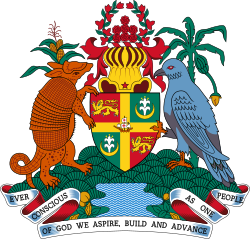 |
|---|
| Administrative divisions (parishes) |
This article lists political parties in Grenada. Grenada has a two-party system, which means that there are two dominant political parties. For other parties it is extremely difficult to achieve substantial electoral success.